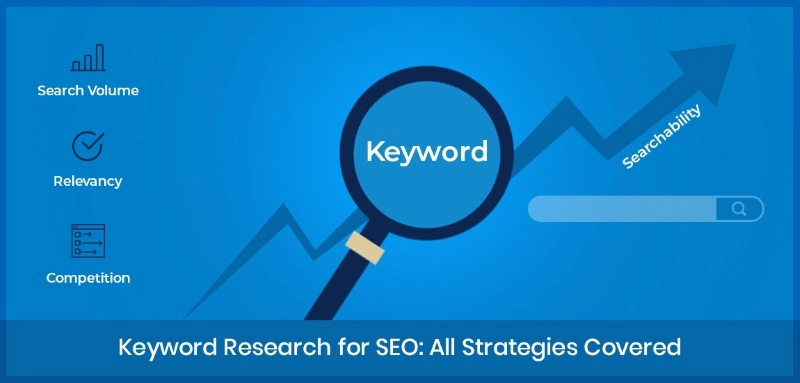
Are you tired of feeling invisible to potential customers in your local area? As a small business owner, it’s crucial to have a strong online presence to attract leads and drive sales. A well-designed website, paired with effective local SEO strategies, can be the key to unlocking your business’s full potential. By optimizing your website for local search, you can increase your visibility, drive more foot traffic, and convert visitors into paying customers. In this article, we’ll explore the crucial local SEO strategies you need to boost your small business visibility and start generating more leads and sales.
Identifying Your Target Audience
The key to creating an effective local SEO strategy is to understand who your target audience is. This involves identifying the demographics, needs, and behaviors of your ideal customers. By doing so, you can tailor your website, content, and marketing efforts to appeal to them, increasing the chances of attracting quality leads and converting them into paying customers.
Defining Your Ideal Customer
Identifying your ideal customer begins with understanding their characteristics, pain points, and goals. Ask yourself questions like: What is their age, gender, occupation, and income level? What problems do they face, and how can your business solve them? What are their interests, values, and motivations? By answering these questions, you can create buyer personas that guide your marketing efforts and help you design a brand that resonates with your target audience.
For instance, if you’re a local dentist, your ideal customer might be a busy professional aged 25-45 who values convenience and is looking for a dentist with flexible hours and a gentle approach. By understanding their needs and preferences, you can optimize your website and online presence to attract more patients like them.
Analyzing Your Competitors
With a clear understanding of your ideal customer, it’s necessary to analyze your competitors to see how they’re attracting and engaging with similar customers. Research their website, social media, and online reviews to identify gaps in the market and opportunities to differentiate your business. Look at their strengths and weaknesses, and ask yourself: What are they doing well, and how can I improve upon it? What are missing, and how can I fill that gap?
By analyzing your competitors, you can refine your local SEO strategy and create a unique value proposition that sets your business apart. For example, if you notice that your competitors are neglecting to optimize their Google My Business listing, you can make sure to claim and optimize yours to attract more local customers.
Audience research is an ongoing process, and it’s crucial to continually gather feedback from your customers and adjust your strategy accordingly. By doing so, you can ensure that your website, content, and marketing efforts remain relevant and effective in attracting quality leads and driving conversions for your business.
Optimizing Your Online Presence
Even in today’s digital age, many small businesses struggle to establish a strong online presence. This can lead to missed opportunities, lost customers, and ultimately, a decline in revenue. However, by implementing effective local SEO strategies, you can increase your business’s visibility, drive more leads, and stay ahead of the competition.
Claiming and Verifying Your Google My Business Listing
Any small business owner knows the importance of having a solid online presence. One of the most critical steps in achieving this is claiming and verifying your Google My Business listing. This free tool allows you to manage your business’s online presence across Google, including Search and Maps. By claiming and verifying your listing, you can ensure that your business’s information is accurate, up-to-date, and easily accessible to potential customers.
Additionally, a verified Google My Business listing can significantly improve your local search engine rankings, making it more likely that customers will find your business when searching for products or services like yours.
Building a Mobile-Friendly Website
An attractive and user-friendly website is imperative for any small business looking to establish a strong online presence. However, in today’s mobile-first world, it’s crucial that your website is optimized for mobile devices. A mobile-friendly website ensures that your site looks and functions great on smartphones and tablets, providing an excellent user experience for customers on-the-go.
Plus, a mobile-friendly website can significantly improve your search engine rankings, as Google now prioritizes mobile-friendly sites in its search results. This means that if your website isn’t optimized for mobile, you could be missing out on valuable leads and customers.
A well-designed website should also reflect your business’s brand identity, showcasing your unique value proposition and differentiating you from competitors.
Creating Consistent NAP Citations
To ensure that your business’s online presence is accurate and consistent, it’s imperative to create consistent NAP (Name, Address, Phone Number) citations across the web. This includes listing your business in directories, citations, and other online platforms. Consistent NAP citations help search engines like Google understand your business’s identity, improving your local search engine rankings and increasing your visibility to potential customers.
By creating consistent NAP citations, you can also reduce the risk of incorrect or outdated information being displayed online, which can harm your business’s reputation and credibility.
Verifying your business’s NAP citations is also crucial, as it helps search engines trust the accuracy of your business’s information, further improving your local search engine rankings.
Keyword Research and Strategy

Once again, the foundation of a successful local SEO strategy lies in understanding your target audience and identifying the keywords they use to search for your products or services. By conducting thorough keyword research, you can optimize your website and online presence to attract more qualified leads and drive conversions.
As discussed in Local SEO strategies for small business success, keyword research is a crucial step in creating a solid online presence. It helps you understand what your customers are searching for and how you can tailor your content to meet their needs.
Identifying Relevant Local Keywords
Keywords are the building blocks of any successful SEO strategy. Regarding local SEO, you need to identify keywords that are relevant to your business and location. This includes keywords related to your products or services, as well as long-tail keywords that incorporate your location.
Using Long-Tail Keywords for Better Visibility
Better targeting of your audience begins with using long-tail keywords. These keywords are more specific and less competitive than generic keywords, making it easier to rank higher in search engine results.
Long-tail keywords also help you attract more targeted traffic to your website. By using keywords that are specific to your location and services, you can attract customers who are actively searching for what you offer.
Another benefit of using long-tail keywords is that they have lower competition rates. This means you can rank higher in search engine results with less effort, increasing your online visibility and driving more conversions.
Incorporating Keywords into Your Website Content
Visibility is key when it comes to local SEO. By incorporating your target keywords into your website content, you can increase your online visibility and attract more qualified leads.
This includes optimizing your page titles, meta descriptions, headings, and body content with your target keywords. You should also use keywords in your alt tags, image descriptions, and internal linking structure, keywords can also be incorporated into your website’s design and brand identity. For instance, you can use location-based keywords in your business name, tagline, or slogan to increase brand recognition and online visibility.
On-Page Optimization Techniques
Now that we’ve covered the importance of local SEO, let’s look into the nitty-gritty of on-page optimization techniques that can help boost your small business visibility.
These techniques are crucial in helping search engines like Google understand the structure and content of your website, making it more likely to appear in search results for relevant keywords.
Writing Optimized Title Tags and Meta Descriptions
One of the most critical on-page optimization elements is the title tag, which is the title that appears in search engine results pages (SERPs). A well-crafted title tag should accurately describe the content of the page and include target keywords.
A good title tag should be attention-grabbing, informative, and concise, as it’s often the first thing potential customers see when searching for your business online. Additionally, meta descriptions provide a brief summary of the page’s content and should also include target keywords. While they don’t directly impact search engine rankings, they can influence click-through rates.
Using Header Tags for Better Structure
Tags like H1, H2, and H3 help organize content and create a clear hierarchy on your website.
By using header tags, you can break up large blocks of text, making it easier for users and search engines to understand the structure and content of your page. This is especially important for local businesses, as it helps search engines understand the relevance of your content to specific geographic locations.
The proper use of header tags can also improve the overall user experience, making it more likely that visitors will stay on your site and engage with your content.
Optimizing Images with Alt Tags and Descriptions
Optimized images can greatly enhance the user experience and improve your website’s overall SEO.
By adding alt tags and descriptions to your images, you’re providing search engines with a better understanding of the content and context of your images. This is especially important for local businesses, as it can help search engines associate your images with specific locations and keywords.
This optimization technique is often overlooked, but it can make a significant difference in your website’s visibility and search engine rankings.
Building High-Quality Local Citations
Many small businesses struggle to increase their online visibility, but building high-quality local citations can be a game-changer. Citations are mentions of your business’s name, address, and phone number (NAP) on other websites, and they play a crucial role in local search engine optimization (SEO).
Leveraging Online Directories and Listings
Any small business looking to boost its local visibility should start by leveraging online directories and listings. This includes popular platforms like Yelp, Google My Business, and Bing Places, as well as niche directories specific to your industry. By claiming and optimizing your listings on these sites, you can increase your chances of ranking higher in local search results and drive more leads to your business.
Remember to ensure consistency across all listings, using the same NAP and business hours to avoid confusion. This will also help search engines trust your business’s online presence and improve your local SEO.
Creating Citations on Relevant Industry Sites
With the rise of online directories, it’s easy to overlook the importance of citations on relevant industry sites. However, these citations can be incredibly valuable, as they demonstrate your business’s expertise and credibility within a specific niche.
By creating citations on industry-specific sites, you can attract high-quality leads who are actively searching for services like yours. For example, a plumber might create citations on home improvement websites or forums, while a lawyer might create citations on legal directories or review sites.
A key benefit of citations on industry sites is that they often come with a higher level of authority and trust, as they are seen as endorsements from reputable sources within your industry. This can lead to increased credibility and a stronger online presence for your business.
Encouraging Customer Reviews and Ratings
Online reviews and ratings are vital for building trust and credibility with potential customers. By encouraging your satisfied customers to leave reviews on your website or third-party platforms, you can increase your chances of attracting new leads and driving more sales.
Remember to respond promptly to both positive and negative reviews, as this demonstrates your commitment to customer service and helps to build a positive brand reputation. By leveraging customer reviews and ratings, you can create a powerful marketing tool that drives real results for your business.
Relevant and recent reviews can also improve your local SEO, as search engines take into account the overall sentiment and frequency of reviews when ranking businesses in local search results. By prioritizing customer reviews and ratings, you can create a competitive advantage that sets your business apart from the competition.
Developing a Content Marketing Strategy

For any small business, developing a content marketing strategy is crucial to increase online visibility and attract potential customers. A well-planned content strategy can help you establish your brand as an authority in your industry, drive more traffic to your website, and ultimately generate more leads.
Creating Valuable and Relevant Content
Content is king, and creating high-quality, relevant, and valuable content is vital to attract and engage your target audience. Your content should be designed to educate, inform, or entertain your customers, and should be optimized for search engines to improve your website’s visibility. When creating content, consider the needs and pain points of your customers, and provide solutions to their problems. This will help you build trust and credibility with your audience, increasing the chances of converting them into paying customers.
By creating valuable and relevant content, you can establish your business as a thought leader in your industry and differentiate yourself from your competitors. This can include blog posts, videos, infographics, podcasts, and more. Recall, the goal of your content is to provide value to your customers, so focus on quality over quantity.
Using Blogging to Establish Authority
Creating informative and engaging blog posts is an effective way to establish your business as an authority in your industry. By publishing regular blog posts, you can demonstrate your expertise and showcase your knowledge, helping to build trust with your audience. Blogging also provides an opportunity to optimize your content for search engines, improving your website’s visibility and driving more traffic to your site.
Valuable blog posts can help you attract potential customers and convert them into leads. By providing solutions to their problems, you can establish your business as a trusted resource, increasing the chances of generating sales.
Leveraging Social Media for Content Promotion
Relevant and engaging content is useless if it doesn’t reach your target audience. Leveraging social media platforms is an effective way to promote your content and increase its reach. By sharing your content on social media, you can drive more traffic to your website, increase engagement, and generate more leads. Remember to tailor your content to each social media platform and use relevant hashtags to increase its visibility.
Plus, social media provides an opportunity to engage with your audience, respond to their queries, and build a community around your brand. By sharing user-generated content, you can encourage engagement and increase brand loyalty.
Conclusion
Taking this into account, it’s clear that implementing effective local SEO strategies is crucial for small businesses to increase their online visibility and attract more customers. By optimizing your website and online presence for local search, you can drive more leads and conversions, ultimately growing your business. To learn more about how to boost your small business visibility with effective local SEO strategies, check out this informative guide: Boost Your Small Business Visibility with Effective Local SEO Strategies.
Recall, having a well-designed website that is optimized for local search is just the first step. You need to ensure that your brand reputation is strong, your social media presence is consistent, and your advertisement strategy is targeted to bring in the best return on investment. By following these tips and staying focused on conversion, you can turn your visitors into premium paying customers and take your business to the next level. So, don’t wait any longer – start optimizing your local SEO today and watch your business thrive!











